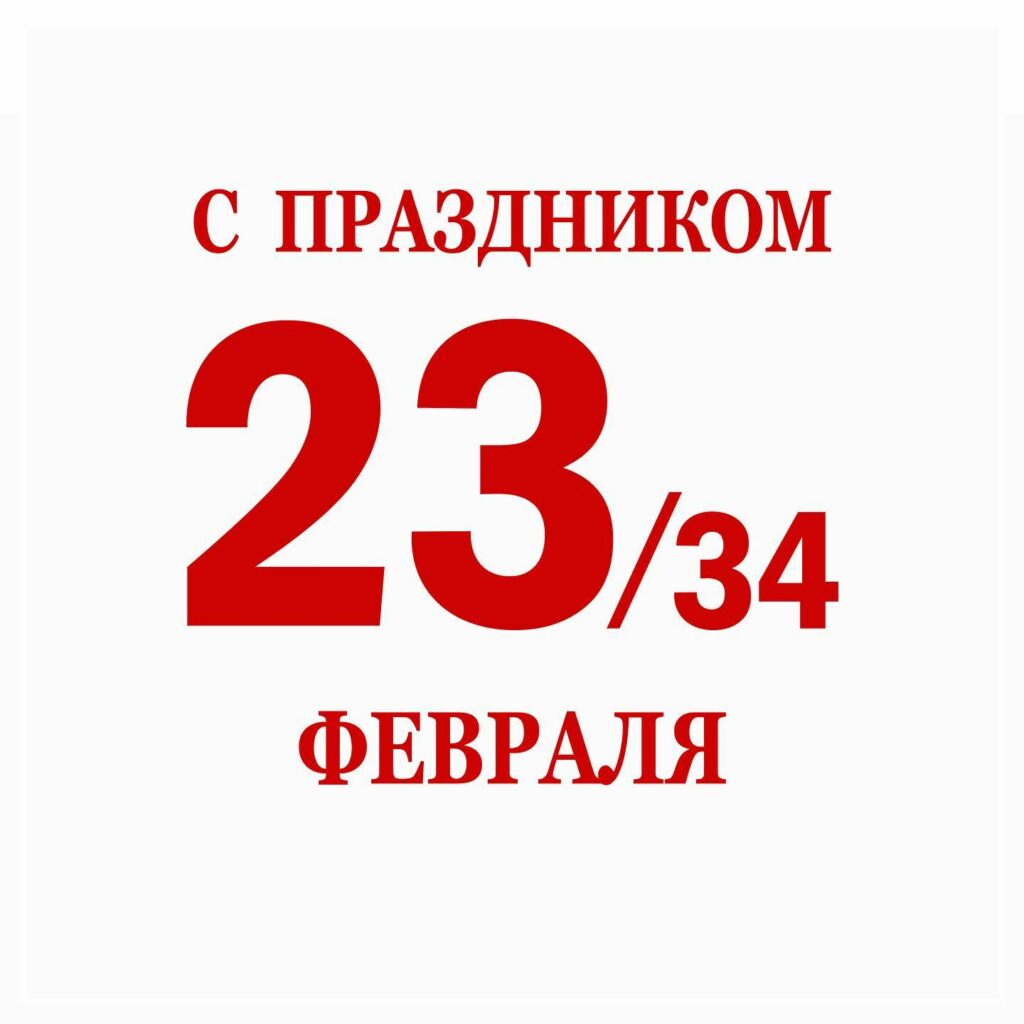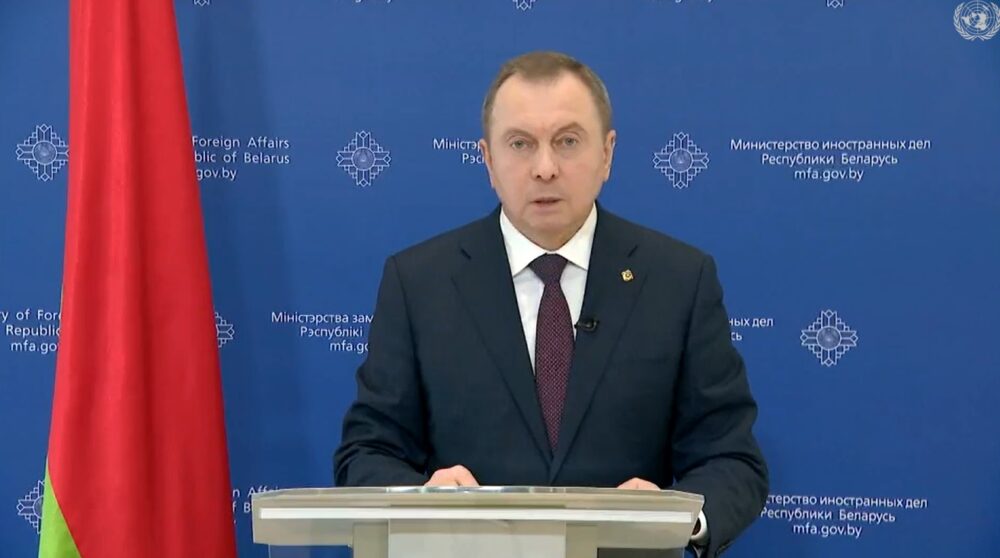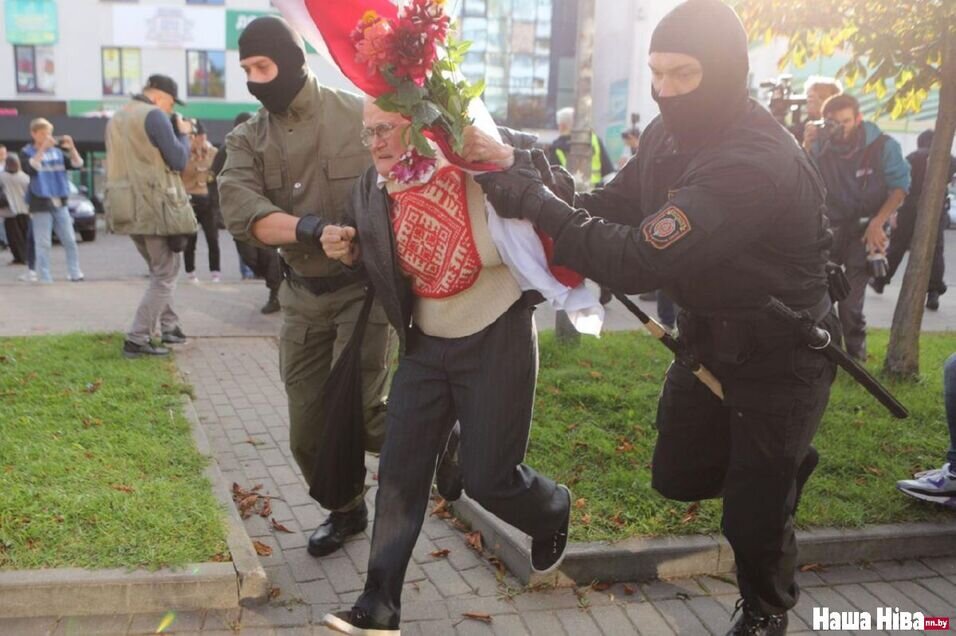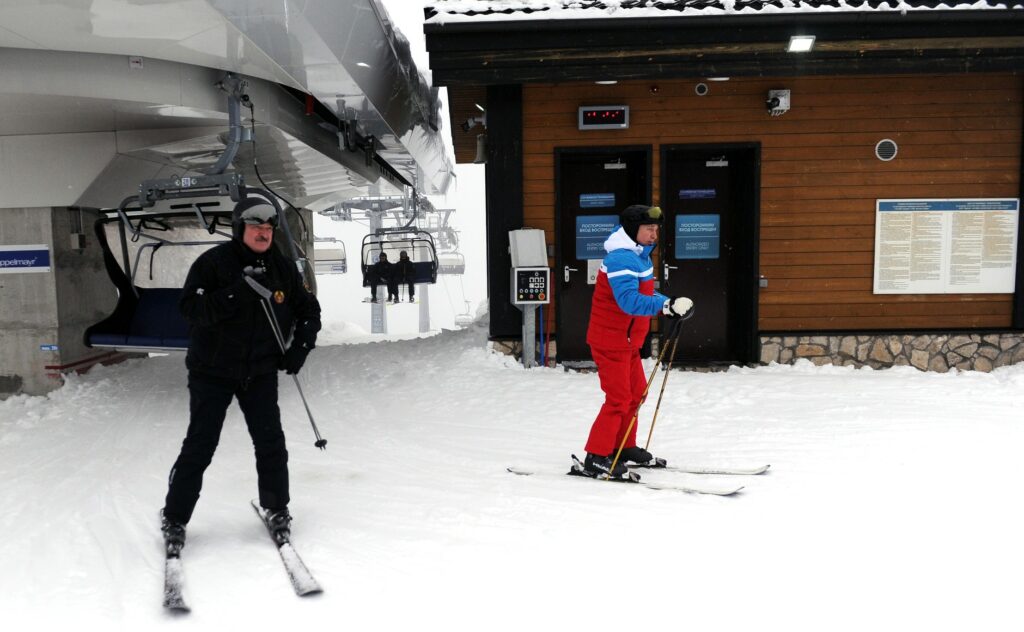Belarusian Foreign Minister told the UN that Belarusian cities are the safest in the world; students strengthen their coalition; Lukashenko and Putin met and spoke on the phone
23 February 2021 | Voice of Belarus

Source: facebook.com/vtsesler
Heroes of Change Day instead of Defender of the Fatherland Day
On 23 February, Belarus officially celebrates Defender of the Fatherland Day. This is a legacy of the Soviet era, when Day of the Soviet Army and Navy was celebrated on this day. Traditionally, the military was congratulated, but also all men according to the “folk tradition”. In fact, this is one of the gender holidays celebrated in the post-Soviet space. Many people used to have a negative attitude towards also congratulating those who had nothing to do with military service. However, after the torture and atrocities in which people in uniform were involved, a moral choice emerged for many regarding whether to celebrate this day at all.
Sviatlana Tsikhanouskaya urged the residents of Belarus to celebrate 23 February not as Defender of the Fatherland Day, but as Heroes of Change Day. “Let 23 February be their holiday! Bring them flowers, send a postcard, prepare a gift, treat them to a cup of coffee, invite them over. Call those you can’t meet. Make this day a real, not an imposed, holiday. Remember, this is a holiday for everyone who ended up in prison for their political position,” said Tsikhanouskaya.
Belarusian Foreign Minister Makei spoke at the UN: Belarusian cities are one of the safest in the world

Source: Reformation
Belarusian Foreign Minister Uladzimir Makei spoke at the 46th session of the UN Human Rights Council and called the events taking place around his country a failed attempt to impose a “color revolution”. Here are the main points of his speech:
“We can proudly declare that Belarusian cities are some of the safest cities in the world; that all citizens in our country are provided with employment opportunities, the right to pension, free education and one of the most affordable and effective systems of free medicine in the world,” Makei said.

“Human rights are a favorite excuse of the so-called mature democracies for making arbitrary accusations against those states that fulfill their human rights obligations by strictly following international treaties, not their biased interpretations.”
“International institutions have no reason for exclusive attention to Belarus on the topic of human rights, except for the purpose of political pressure on the legitimate government.”
“Someone cannot get used to the idea that, despite the tough economic and political pressure, the Belarusian state is developing not according to the patterns of Western countries, but in the way the Belarusian people decide. For this independent position, Belarus was subjected to a brutal attack from the outside.”
“In order to overthrow the current government, all sorts of mechanisms were used to destabilize the internal situation: from fake news and the financing of supposedly ‘spontaneous’ protests to political and economic sanctions, but Belarus survived.”
“The All Belarusian People’s Assembly has convincingly confirmed the support of the state policy by the majority of the population.”
Lukashenko and Putin went skiing in Sochi, and then also spoke on the phone

Source: TUT.BY
On 22 February 2021, a meeting between Alexander Lukashenko and Vladimir Putin took place. Until now, there is no specific information about the main topics of conversation and the decisions made. Experts believe that Belarus is currently in isolation, and only Russia supports it. In this regard, Lukashenko once again came to ask Putin for financial support. To stay in power, Lukashenko is ready for a lot, including an increased integration with Russia. He said that almost all roadmaps in various areas of cooperation between Moscow and Minsk are ready for signing. According to insider information, Lukashenko is even ready to sell several Belarusian enterprises to Russian businessmen.
Today, on 23 February, Putin and Lukashenko had a phone conversation, during which, according to official information, they discussed issues of Belarusian-Russian cooperation – in particular, the functioning of the tax system, cooperation in the military-industrial complex, as well as the strengthening of joint defense systems.
Students of 15 Belarusian universities strengthened the Belarusian Students’ Association

Representatives of 15 student communities from universities in Belarus joined the Belarusian Students’ Association (BSA). In fact, this is a renewal of an already existing organization, only now it includes not just individual activists, but also strike committees that represent the interests of their universities. Students elect their representatives to the Association.
The BSA supports the demands of a nationwide protest: an end to violence, the release of all political prisoners, the annulment of the 2020 presidential election results and the resignation of Alexander Lukashenko. Students are going to form student self-government bodies, fight against forced employment assignment and advocate the creation of fair conditions for students in the new Belarus. Today, the BSA is engaged in the collection of sureties for imprisoned students and the provision of legal assistance. The BSA is a full member of the European Students’ Union, joining all student unions and associations in Europe. The BSA maintains English-language statistics on the use of repressions against students, and also prepares alternative reports on human rights violations in the academic community for the Bologna Process, the European Parliament, the OSCE and the UN.
In 1988–1989, informal student associations in Belarus, united by the Belarusian national idea, decided to come together into a single coalition. In 1992, the BSA was officially registered by the Ministry of Justice of Belarus. After Lukashenko came to power in 1994, a consistent persecution of independent organizations, including the BSA, began. In 2001, the BSA became the first major victim of the unconstitutional decision of the Supreme Court to liquidate these types of organizations. Since 2006, the BSA has been primarily functioning underground, engaging in projects on non-formal education and culture.